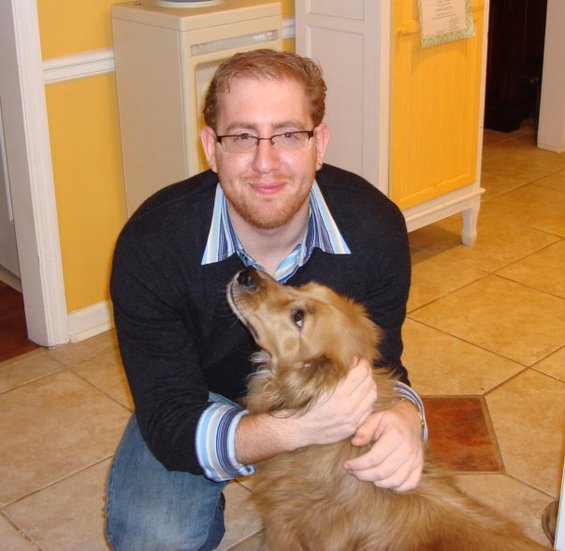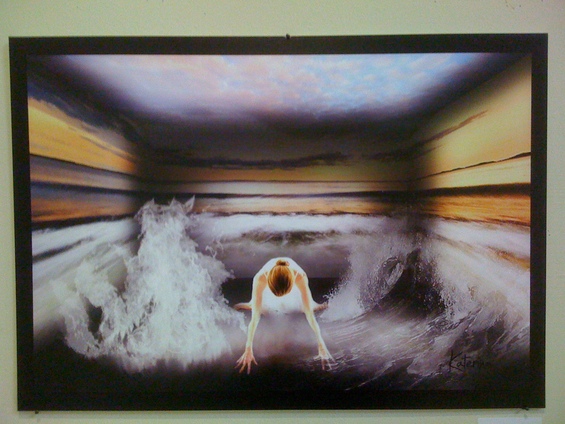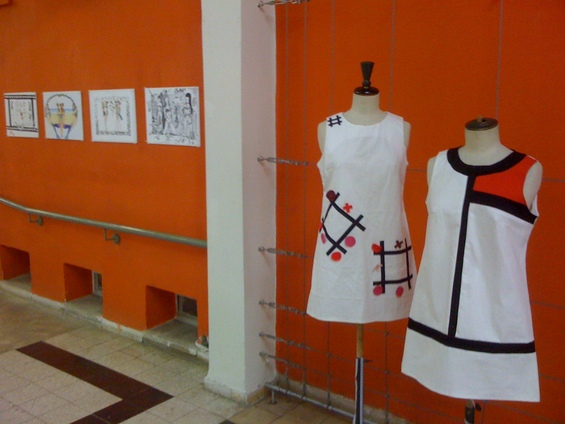by Vanessa Friedman
Shalom again – it’s Thursday, and you know what that means: time for another update from Haifa! In an effort to give a more detailed and personal picture of our time in Haifa, I’m going to be picking one person from the OTZMA group each week to “interview.” This week, let’s focus on Austen Shantz.
Austen is awesome in many ways, not least because of the amazing goodies his host mom bakes that he then shares with us. But seriously, the work Austen does in Haifa is very meaningful and important. As a talented musician, it was important to him to use those skills in his work here; as such, he teaches English at the Reut School and plays music at the Yuval Center for Music and Youth Orchestras. The Reut School is a special one, created for young artists to both learn and practice their crafts: the students can “major” in music, art, photography, media studies, dance, or theater. Austen sometimes plays music with the kids he teaches in order to help facilitate the learning process. In his opinion, teaching English is not easy, especially when we’re not fluent in Hebrew: “It’s difficult, trying to teach a language they don’t know in a language we don’t know…it’s all about taking it in stride and having a certain sense of humility and grace,” he said. “For example, today I called my nose [af] a piece of paper [daf]!”
Art created by the students of the Reut School (images by Austen Shantz)
At the Yuval Center, Austen has a slightly different experience: he’s the one trying to grasp the language. He plays violin with the orchestra and accompanies the choir, but all instruction is in Hebrew. Interestingly, he doesn’t have trouble following at all: “I don’t understand the Hebrew coming out of [the director’s] mouth, but when she talks about music, I understand what she’s saying. I think music teachers and artists are different from everyone else, but they’re the same halfway across the world.”
Austen’s observations about volunteering and connecting with people despite a language barrier remind me of what we are forced, as non-fluent Hebrew speakers, to do every day. I often joke that there is beauty in being lost in translation; I don’t think that’s wrong. As someone who personally relies on words to get me through life (I’m majored in English and Creative Writing) it’s a very weird experience to suddenly not be able to rely on my vocabulary. There is definitely something beautiful about having to find new ways to say things that at home might be simple; I find myself talking around what I mean to say in order to use vocabulary that I actually know, gesturing wildly in an effort to make myself understood, and at time just giving up, offering a smile and a shrug, knowing that if what I have to say was so important I would find a way to be heard. It’s not the way I’m used to existing in the world, but I don’t mind it. Austen’s right: with a little grace and humility, we can all get along in Israel just fine.
Grace, humility, and the gorgeous city lights: perfect ways to appreciate the beauty of living in Haifa and occasionally being lost in translation. Lehitraot!
This post has been contributed by a third party. The opinions, facts and any media content are presented solely by the author, and JewishBoston assumes no responsibility for them. Want to add your voice to the conversation? Publish your own post here. MORE



